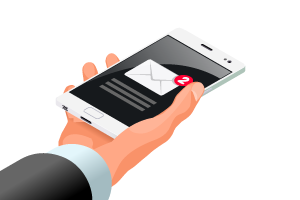The Federal Trade Commission states Covid-19 scams have cost more than 18,000 Americans a total of $13.4 million since the beginning of the year. Many of these are email phishing or phone fraud that prey on the uncertainties of people trying to gather information in a time of crisis.
Covid Specific Scams
- Urgent news from health organizations, especially with information that claims to be distinct to your area.
- Beware of unsolicited telephone calls and emails from people claiming to be from the IRS. The IRS first form of communication is by mail-not by phone or email.
- Updates from employers about covid. With many people working remotely, this scam claims to be from your company asking you to download a document about “precautions,” “policies,” or “procedures.” Once downloaded, you will unleash malicious software onto your computer.
- Covid-19 information from a third party about how to “protect yourself and community” from the virus.
- Request for donations from fraudulent charities asking for money to help the victims of the virus.
- Promises of funds to pay for Covid-19 expenses with “emergency grants”.
- Unsolicited emails promising hard to find cleaning products or face masks. Your order is taken and supplies are never delivered. Avoid ads for goods and services that attempt to capitalize on the coronavirus.
- Fake job postings, often citing an urgent need in the medical community because of the coronavirus. These listings will gather your social security and bank information as part of the application process.
- Official sounding Covid exposure text message. This text claims that you have been in contact with someone that has now tested positive for Covid-19. It urges you to click on a link to get more information about getting tested. The link will gather personal information from your mobile device.
How to Spot Phishing Emails
- Check the email address of the sender or link. Scammers often create links that closely resemble a recognized address. Hover your mouse over the link to see where it leads.
- Directs you to click on links or downloads. If you think the link is legitimate, do not clink on the link, simply type it in the address bar of a new window.
- Includes a request for personal, medical, or financial information.
- Beware of spelling or grammatical mistakes.
- Impersonal greetings. “Dear sir or madam,” or “To whom it may concern”.
- Beware of emails that demand an immediate response.
- ALWAYS DELETE SUSPECT EMAILS IMMEDIATELY
How to Detect Phone Scams
- Unrecognizable numbers that may be similar to your own.
- Claiming to be a federal or governmental agency asking for donations or personal information. The government will never call to ask for money or your personal information like Social Security, bank account, or credit card numbers.
- Unsolicited calls that offer free medical goods or services, such as free COVID-19 testing kits.
- Recorded phone calls about your social security number. Your social security number does not get “suspended” or “expire”. Never give your social security number to anyone that contacts you.
Where to Get Legitimate Information
World Health Organization. WHO provides a range of information, including how to protect yourself, travel advice, and answers to common questions.
National Institutes of Health. NIH provides updated information and guidance about COVID-19. It includes information from other government organizations.







